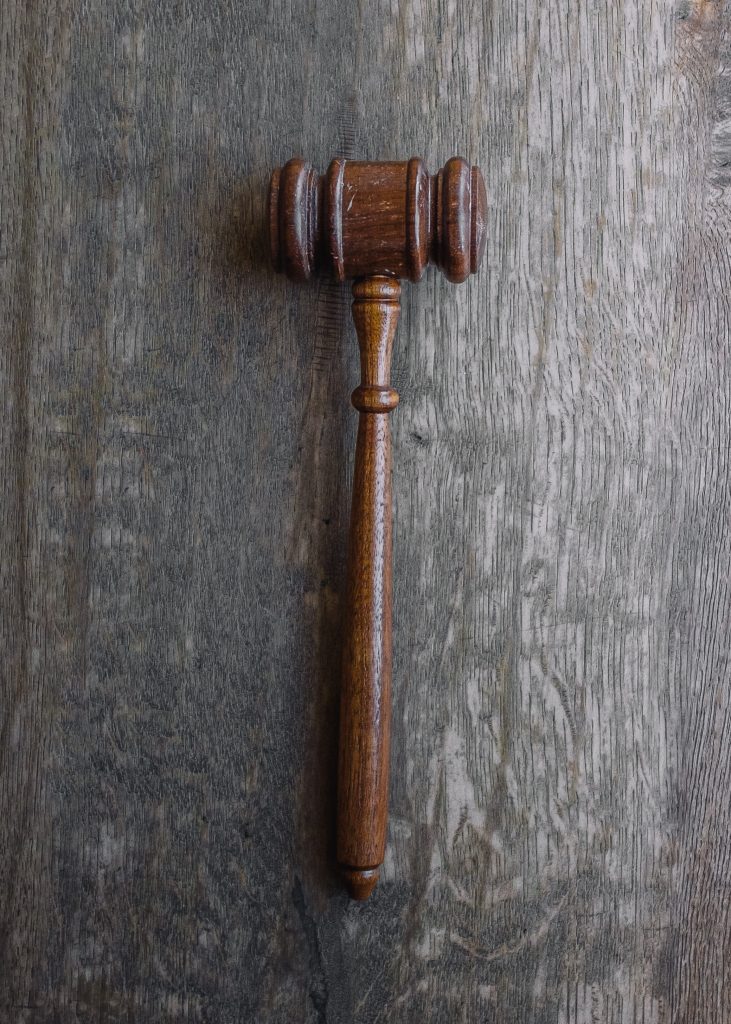Who clears a house when someone dies
When a person passes, their house must be cleared. This difficult task involves deciding what to keep, donate or sell. It can seem overwhelming, but it is an important part of the grieving process.
Friends and family come to help. They pack away the things with sentimental value and discard the rest. This is a time-consuming process that needs both patience and empathy.
Clearing a house can take an emotional toll. Every item can bring back memories. During WWII, families had to clear houses after bombings. It was both physically and emotionally hard. It showed us how compassion is vital during tough times.
Clearing a house is not only about tidying up, it’s about honouring their life and legacy. Though it’s draining, it helps loved ones find closure and preserves memories for generations.

Understanding the legal process
Understanding the legal process when it comes to clearing a house after someone’s passing is essential. It involves navigating through various legal procedures and formalities. Executors or administrators, designated by the deceased’s will or appointed by the court, take charge of the process. They handle important tasks such as locating the will, identifying assets, paying off debts, distributing inheritances, and managing any disputes. It is crucial to follow legal guidelines and deadlines, ensuring a smooth and fair handling of the deceased’s estate.
As the legal process unfolds, executors or administrators must begin by locating the deceased’s will. This document outlines their wishes and appoints individuals responsible for carrying them out. Executors gather the necessary paperwork, including death certificates, to assess the assets, liabilities, and debts of the deceased. Outstanding debts, such as mortgages, bills, and funeral expenses, must be settled before any distributions can take place. Executors or administrators may have to sell assets such as property, stocks, or vehicles to cover these obligations.
Once the debts are settled, executors or administrators can proceed with distributing inheritances according to the deceased’s wishes. This may involve coordinating with beneficiaries, heirs, and financial institutions to ensure a fair and timely distribution. Executors may also need to seek legal advice if there are any disputes or complications during the distribution process. It is important to meticulously document and keep records of all transactions and communications throughout the process to avoid potential conflicts or legal issues.
A real-life example further illustrates the significance of understanding the legal process. In a case where a person passes away without leaving a will or appointing an executor, the court may appoint an administrator to handle the estate. This administrator will follow a similar process as an executor, locating assets, settling debts, and distributing inheritances according to the laws of intestacy. The legal process provides a framework for fairness and transparency, ensuring that the deceased’s estate is handled appropriately and in accordance with the law.
“Death may be inevitable, but probate is the real Grim Reaper of your estate.”
Probate
Probate has multiple key factors. Firstly, court application and documents, such as the will and death certificate, must be filed. This starts the process to validate the will and select an executor.
The second step is to list all the assets owned by the deceased. This includes properties, investments, bank accounts, and personal items. Debts and taxes are paid from the estate funds.
Some assets do not need probate. These are joint tenancies with rights of survivorship, life insurance policies with designated beneficiaries, and assets held in trust. These are given to the designated people without probate.
The Law Society states: “Probate provides administrators a legal framework to manage estates.”
Estate administration
An executor or administrator is appointed to manage the estate administration process. They make sure documents are collected, assets are valued, debts are paid off and the remainder of the estate is distributed according to the will or legalities.
Obtaining probate is the court order allowing authority to administer the estate. Executors/administrators need to present the necessary documents and pay fees for this.
For inventory and valuation, the executor/administrator has to list all assets like property, investments, bank accounts and personal belongings. Then they decide their worth to divide the estate.
Before any division of the estate, debts, taxes and other financial responsibilities have to be settled. The executor/administrator identifies creditors and pays them.
Once all settlements are done, the executor/administrator distributes the assets among beneficiaries as specified in the will or according to inheritance laws in case there is no valid will.
It’s important to note that estate administration can be a long process. It needs special attention and sticking to legal rules. Executors/administrators should get professional legal advice if they are uncertain about anything.
According to gov.uk, in England and Wales, the Probate Registry is responsible for granting probate and giving grants of representation to executors/administrators to handle estates properly.
Determining the responsible party
Figuring out who is responsible for tidying a house when someone dies can be complex. Let’s look at the factors that come into play to decide who is in charge.
Factors for Responsibility:
- Relatives: Usually, the deceased’s nearest kin, like their spouse, children, or parents, are responsible.
- Executors: If the deceased had a will, the executor named in it will be in charge. This person must carry out the wishes of the deceased and manage their estate.
- Probate: If no will is present, or if there is no executor, a court-appointed administrator may be chosen through probate. This person distributes assets and pays off any debts.
- Property: It all depends on who owns the property where the deceased lived. If it is owned by them, their family or executor are responsible. If it was rented or shared ownership, other arrangements may need to be made with landlords or co-owners.
These factors are only part of the equation when deciding the responsible party for tidying a house after someone dies. It is important to consult legal professionals and consider individual circumstances to handle this task with respect.
In the case of Mr. Johnson, who passed away without a will or executor, his daughter became responsible for clearing his house. As his closest living relative, she felt it was her duty. With help from legal advisors and family friends, she managed the process and made sure her father’s belongings were treated with care.
This example shows that the responsible party for tidying a house after someone dies can depend on individual cases. It is crucial to approach this with empathy and understanding, taking into account legal obligations and family relationships.

Contacting an attorney or executor
Contacting an attorney or executor is crucial when clearing a house after someone passes away. These professionals guide you through the legal process, ensuring all necessary steps are taken to settle the deceased’s affairs smoothly and efficiently.
With their expertise, attorneys and executors assist in obtaining necessary legal documents such as the will and death certificate. They provide valuable advice on inheritance laws, estate taxes, and distribution of assets among beneficiaries. By reaching out to them, you ensure that all legal requirements are met, minimizing potential disputes and complications.
Additionally, attorneys and executors handle the administrative tasks involved in clearing a house. They help locate and secure valuable possessions, handle financial matters, and assist in organizing estate sales or auctions. Their presence provides a sense of objectivity, ensuring fair and unbiased decision-making during the entire process.
To make the most out of contacting an attorney or executor, it is advisable to gather all relevant documents beforehand. This includes the deceased’s will, bank statements, insurance policies, and property deeds. By having these in order, the attorney or executor can assess the estate’s assets and liabilities accurately, allowing for a smoother execution of the deceased’s wishes.
Remember to communicate openly and honestly with the attorney or executor. Share any concerns or special requests you may have, ensuring they have a comprehensive understanding of your needs. This collaboration will ensure that their advice and suggestions align with your intentions and the best interests of the estate.
Executor’s role and responsibilities
The executor has a vital duty in the administration of an estate. They guarantee that the desires of the expired are met and that resources are dispersed correctly. They oversee the legitimate and money related parts of the domain and any other errands given in the will.
Their roles and responsibilities are:
- Identifying and collecting all assets of the deceased – property, investments, and personal possessions.
- Paying off any debts or bills owed by the estate.
- Gaining probate, if required, which is a lawful cycle to affirm the will and give power to the executor.
- Filing tax returns on the estate’s behalf.
- Distributing assets to beneficiaries per the will’s instructions.
These duties need cautious consideration, organization skills, and understanding of probate laws. The executor must act objectively and settle on choices in the best interests of all beneficiaries.
Moreover, it is important for executors to keep accurate records of all financial transactions connected to the estate. This includes keeping proper accounting records and providing detailed information if asked by beneficiaries or authorities.

Clearing out personal belongings
Clearing out personal belongings after someone’s passing can be a difficult and emotionally overwhelming task. It requires sensitivity and organization to respectfully handle this process. Here’s a step-by-step guide to help you navigate through the process with care:
- Assess the Situation:
Start by understanding the scope of the task ahead. Take a moment to evaluate the size of the property and the extent of the personal belongings left behind. This will help you gauge how much time and manpower you will need to complete the task.
- Sort and Categorize:
Begin by categorizing the items into different groups. You can use labels or color-coded stickers to mark these categories. Common categories may include sentimental items, valuables, documents, furniture, and clothes. This step will make it easier to deal with each category separately, preventing overwhelm.
- Decide on Disposition Options:
Once everything is sorted, decide on the disposition options for each category. Some items may be kept by family members, while others can be donated to charities or sold. Make sure to respect the wishes and instructions left behind by the deceased if any were provided.
- Seek Professional Help:
If the task seems too daunting to handle alone, consider hiring professional clearance services. They have experience in handling delicate situations and can provide valuable guidance and support throughout the process. Remember to choose reputable professionals who are sensitive to your needs.
It’s important to note that this process can be emotionally challenging, so it’s crucial to take breaks and seek emotional support as needed. Keep in mind that everyone grieves differently, so respect the time needed to process emotions while still making progress.
In addition, here are a few suggestions to make the task smoother:
- Enlist the Help of Loved Ones:
Reach out to family members or close friends for assistance. Their presence can provide emotional support and make the process less burdensome. Together, you can reminisce about memories associated with the belongings, making it a healing experience.
- Take Inventory:
Create a detailed inventory of the items removed from the property. This will help you keep track of what has been done and ensure nothing valuable is lost in the process. It can also simplify the distribution of items among family members.
- Respect Privacy:
During the clearance process, you may stumble upon personal letters, diaries, or other private items. It’s essential to respect the privacy of the deceased and consult with family members before deciding what to do with these personal belongings.
By following these steps and suggestions, you can clear out personal belongings in a respectful and organized manner. Remember, this challenging process is an opportunity to acknowledge and honor the memories associated with these possessions while moving forward.
Who needs Marie Kondo when you can clear a deceased person’s house and spark joy in the afterlife?
Sorting and organizing
Here’s a visual of the process:
| Categories | Method |
|---|---|
| Clothing | Season & type. Donate/discard unused items |
| Electronics | Organize by function & use frequency |
| Books | Genre or topic. Arrange alphabetically |
| Documents | Folders based on importance & date |
Label storage containers. Clear plastic bins for quick visibility. Here are some ideas to help:
- Designated spaces: Allocate areas for each category. Reduces clutter & facilitates retrieval.
- Declutter: Regular intervals to assess belongings. Discard/donate those not needed/used frequently.
- Storage solutions: Invest in shelves, drawers, closet organizers to maximize space. Utilize vertical space.
By following these suggestions, individuals can streamline sorting & organizing. Live in an orderly environment free from unnecessary clutter.
Distribution among family members
Distribution among family members can be organized with this table. Each will receive items according to their likes or sentiment. It’s important to talk openly and factor in everyone’s preferences.
Ancestral heirlooms and significant items should be given extra thought. These special objects have history and must maintain their cultural or emotional value for the future.
| Possessions | Recipient |
|---|---|
| Jewellery | Sarah |
| Artwork | David |
| Furniture | Emma |
| Antiques | Jessica |
Dealing with financial matters
Dealing with financial matters after someone’s passing is a crucial and often challenging task. It involves handling various aspects, such as managing assets, settling debts, and distributing inheritance. Professionals, like solicitors or executors, usually oversee this process, ensuring legal compliance and efficient execution.
Guiding the bereaved through the intricacies of financial matters entails deep understanding and empathy. Executors, appointed by the deceased’s will or by the court, take charge of securing and valuing assets, assessing liabilities, and calculating taxes. They play a vital role in gathering all necessary financial documents, such as bank statements, insurance policies, and property deeds.
Moreover, executors work closely with banks, lenders, and insurance companies to close accounts, pay off debts, and claim insurance benefits. They also ensure that taxes, including inheritance tax, are properly calculated and paid. Executors act as the main point of contact for financial institutions, alleviating the burden on grieving family members.
In addition to these core responsibilities, executors also handle any outstanding legal matters, including filing the deceased’s final tax return and applying for probate if necessary. Additionally, they may need to liaise with beneficiaries and make arrangements for the distribution of assets, following the instructions stated in the will.
Pro Tip: It is beneficial to seek professional advice and support when dealing with financial matters after a loved one’s passing. Executors or solicitors specialized in probate can provide invaluable guidance, ensuring a smooth and legally compliant process.
Debts can be a real ghostly presence, haunting the living even after death, but who you gonna call? A frugal exorcist?
Paying off debts
Prioritize debts with highest interest rates first to save money.
Make a realistic budget and allocate funds to debt repayment every month.
Consider debt consolidation if you have multiple debts. Lower interest rate can make it easier to manage payments and reduce overall interest expenses.
If struggling, seek professional advice.
Understand why each suggestion is important. Prioritizing helps save money. Budgeting provides structure. Consolidation simplifies obligations. Professional advice offers insights and support.
Follow these strategies and take control of debts. Achieve financial freedom!
Closing accounts
- Make sure all payments are done and any forms filled out.
- Notify the institutions of your plan to close the account and ask for written proof.
- Think about how it will affect your credit score and take action to reduce any bad effects.
Remember, closing accounts should be done carefully. It can be tricky and there may be costs or conditions to meet. History shows us this process was difficult before. But, now technology and rules make it much smoother.
Transferring assets
When it comes to transferring assets, there are some important factors to consider. It’s the movement of ownership from 1 entity to another. Here’s a breakdown of the different aspects related to transferring assets. Take a look at the table below. It outlines the types of asset transfers and their details.
| Transfer Type | Description | Process | Timeframe |
|---|---|---|---|
| Gift | Voluntary transfer without pay | Donor must give possession and intent to give | Usually immediate |
| Sale | Transfer in exchange for money | Negotiate price and make purchase agreement | Depends on negotiation |
| Inheritance | Transfer on someone’s death with will or intestate laws | Probate or estate administration process started by court executor or personal representative | Can take months or years |
These are common ways of transferring assets, but each situation may need unique details. For example, international asset transfers have extra legal things to think about due to different laws across places.
To make sure there’s a smooth transfer, think about these suggestions:
- Get professional help: Get a qualified lawyer or financial advisor who specializes in asset transfers. They can give advice that fits your situation.
- Plan ahead: Transferring assets takes time, so it’s better to plan early. This lets any necessary documents and legal requirements to be done quickly.
- Check tax implications: Depending on the type of transfer, there may be tax consequences. Talk to a tax expert to understand any potential tax obligations and get the best financial position.
By following these suggestions, you can handle the complexities of transferring assets well while reducing potential risks and making sure you’re following the right laws and regulations.
Notifying relevant authorities
When it comes to clearing a house after someone passes away, one important step is notifying the relevant authorities. This ensures that the right procedures are followed and any necessary actions are taken.
Here is a 5-step guide to help you navigate the process of notifying relevant authorities:
- Contact the local police station to inform them of the death. They will guide you on the next steps and may require documentation.
- Notify the deceased person’s doctor or the local coroner’s office, especially if the death occurred in suspicious circumstances. They will need to be informed for legal purposes.
- Inform the deceased person’s solicitor or lawyer, if they had one. They can provide important legal advice and assist with any documentation related to the estate.
- Contact the local council to inform them of the death. They will need to update their records and may provide assistance with various matters, such as council tax or housing benefits.
- Reach out to any relevant government departments, such as the Department for Work and Pensions, to inform them of the death. This will ensure that any necessary benefits or payments are stopped.
In addition to these steps, there are a few important details to consider. The exact procedures and authorities involved may vary depending on the specific circumstances, such as whether the deceased person had a will or if they were in receipt of any government benefits.
To ease the process, here are some suggestions:
- Keep a record of all the phone calls and emails you make during this process. This will help you stay organized and have a reference point if needed.
- Seek legal advice if you are unsure about any aspect of the process. An experienced solicitor can provide guidance and ensure that everything is handled properly.
- Be prepared to provide necessary documentation, such as the death certificate, proof of identity, and any relevant legal papers. This will help streamline the notification process.
By following these suggestions and notifying the relevant authorities promptly, you can ensure that the necessary actions are taken and the house clearance process can proceed smoothly.
The Social Security Administration: making sure even death doesn’t exempt you from bureaucratic paperwork.
Social Security Administration
Notifying relevant authorities? Consider the Social Security Administration. They manage social security programs and benefits in the UK. Notify them and your concerns will be addressed.
Provide accurate and detailed information about your situation. This helps them understand your concern. Include any supporting documents or evidence.
The Social Security Administration is committed to confidentiality. Your details are secure during the process.
Need help with the notification process? Reach out to a professional who specializes in social security matters. They can guide you through the steps.
Notifying the Social Security Administration contributes to a fair and efficient system. It helps identify areas of improvement and serve individuals relying on social security benefits.
Department of Motor Vehicles
The Department of Motor Vehicles is a governing body in charge of motor vehicle registration and licensing. It’s vital in guaranteeing road safety and implementing rules related to vehicles and operators.
We’ll look at some essential information about the Department of Motor Vehicles:
| Location | Central Building, London |
| Opening Hours | Mon. – Fri. 9 am – 5 pm Sat. 9 am – 1 pm |
| Services Offered | Vehicle Reg. & Licensing Driver’s License App. Vehicle Inspections Road Tax Payment Driving Records |
The Department of Motor Vehicles is located in the Central Building in London. Their operating hours are from Monday to Friday, with some services available on Saturdays too.
This authoritative organisation provides a variety of services related to motor vehicles. These include vehicle registration and licensing, driver’s license application, vehicle inspections, road tax payment, as well as driving records when necessary.
Pro Tip: When dealing with the Department of Motor Vehicles, make sure you have all the required documents ready. This will speed up the process and save you time.
By following these tips, your dealings with the Department of Motor Vehicles will go smoothly. Remember that being prepared is key to making sure everything is compliant with regulations.

Finalizing the estate
Finalizing the Estate
Once a loved one passes away, the process of finalizing their estate begins. This involves handling their financial and legal affairs to ensure a smooth transition and closure. Here’s what you need to know about finalizing the estate:
- Assess Assets: Begin by identifying and assessing all assets owned by the deceased, such as property, bank accounts, investments, and personal belongings. This will help determine the value and distribution of the estate.
- Pay Debts and Taxes: Settle any outstanding debts, including mortgages, loans, and credit card bills. Additionally, determine and pay any applicable taxes, such as inheritance tax or capital gains tax, to avoid penalties.
- Distribute Inheritance: Follow the instructions laid out by the deceased in their will or trust regarding the distribution of their assets. If no will exists, the estate will be distributed according to the laws of intestacy.
- Legal Proceedings: Depending on the complexity of the estate or any disputes among beneficiaries, legal proceedings may be necessary. This could include probate court proceedings or hiring an estate lawyer.
In addition to these crucial steps, it is essential to maintain accurate records of all transactions and communications related to the estate. Keeping detailed records helps ensure transparency and avoids potential conflicts among beneficiaries.
As the finalization process unfolds, unique details specific to the estate at hand may arise. These can include challenges such as locating hidden assets, dealing with overseas properties, or managing business interests. Seeking professional guidance from an estate attorney or financial advisor can greatly assist in navigating these unique situations effectively.
A true story that exemplifies the process of finalizing an estate involves the Anderson family. Following the passing of their patriarch, Mr. Anderson, the family found themselves overwhelmed with the legalities and emotional tribulations of the finalization process. With the assistance of a compassionate estate lawyer, the Andersons were able to successfully navigate the complexities, ensuring a fair distribution of assets and a proper closure for their beloved family member.
The only thing scarier than selling a haunted house is realizing that it may not be the ghost who scares away potential buyers, but the smell of Aunt Mildred’s expired lasagna in the fridge.
Selling property
Assessing property value is important when selling. Get an independent appraisal to know the fair market price. Then, engage a real estate agent for maximum exposure to potential buyers.
Prepare the property for sale. Keep it well-maintained and stage it appropriately. Gather all relevant documents such as title deeds and energy performance certificates.
Once interested parties show up, negotiate on price, terms, and conditions. Get a solicitor or conveyancer to help with legal matters.
In conclusion, selling property requires careful planning. Value it accurately, market it effectively, prepare it, and negotiate with interested parties to have a successful transaction.
Remember: Selling a house or flat can take longer than expected. Be prepared for delays.
Paying taxes
Settling an estate requires taxes to be paid – a step not to be ignored. It’s essential to make sure all duties are fulfilled, to avoid legal issues.
To start, identify the type of taxes due. This could be income tax, property tax, or inheritance tax. Each type has its own rules; so, getting professional advice is a must.
Next, calculate the amount needed. This can be tricky, as it involves examining assets, assessing income sources, and thinking about exemptions and deductions that could apply.
After that, submit the necessary forms and documentation to the right authorities within the timeframe. Otherwise, penalties or consequences could follow.
Let me tell you a story about Helen. Her dad passed away, so she had to settle his estate, including paying taxes. She contacted an estate lawyer who helped her out. With their guidance, Helen managed to meet all her tax obligations. This experience taught Helen how important it is to get expert advice when dealing with estates.
Distributing inheritance
Divvying up inheritance usually looks like this: property goes to spouse and children, investments to siblings and grandchildren, and retirement funds to nieces and nephews. Plus, a will can appoint how to split up sentimental items or donations.
The redistribution necessitates the help of legal and financial experts to guarantee that the dead person’s requests are fulfilled properly and honestly. Remember, inheritance laws can vary from place to place, so it’s best to get advice from those knowledgeable with the laws.
The Guardian states that a planned out estate distribution simplifies the process and reduces friction between recipients.
Conclusion
After someone passes, a question remains: Who takes care of their house? Usually, the deceased’s family or close friends bear this responsibility. It’s an emotional and demanding job, sorting through possessions and deciding what to keep, sell, or donate.
For this sensitive process, family members may bring in professional estate clearance services. They have the knowledge and experience to handle items with care and respect, while organizing and disposing of them.
Sometimes, the deceased has chosen an executor in their will. This person oversees the estate settlement and clear out of the home, making sure all tasks are done according to the deceased’s wishes and laws.
A key point: BBC News states that 30% of adults in the UK don’t have a will to guide the handling of their affairs post-death.
Frequently Asked Questions
FAQ 1: Who is responsible for clearing a house when someone dies?
Typically, it is the responsibility of the deceased person’s family members or heirs to clear their house after they pass away. They may hire a professional house clearance company to assist them.
FAQ 2: Can I clear a house when someone dies on my own?
Yes, you can choose to clear a house when someone dies on your own. However, it can be a challenging task, both emotionally and physically. It is advisable to seek support from family members or friends during this time.
FAQ 3: How long does it take to clear a house after someone dies?
The time required to clear a house after someone dies varies depending on several factors, such as the size of the property and the amount of belongings. It can take anywhere from a few days to several weeks to complete the process.
FAQ 4: What happens to the belongings inside the house when someone dies?
After someone dies, their belongings can be distributed among family members according to the deceased person’s will or based on the laws of inheritance. Alternatively, the family may choose to sell, donate, or dispose of the belongings.
FAQ 5: Should I hire a professional house clearance company?
Hiring a professional house clearance company can be beneficial if you require assistance in efficiently clearing a house after someone dies. They have experience in handling such situations and can help alleviate the stress and burden associated with the process.
FAQ 6: How do I find a reliable house clearance company?
To find a reliable house clearance company, consider seeking recommendations from family, friends, or solicitors who may have had prior experience. Additionally, conduct thorough research, read reviews, and ensure the company is licensed and insured before making a decision.







